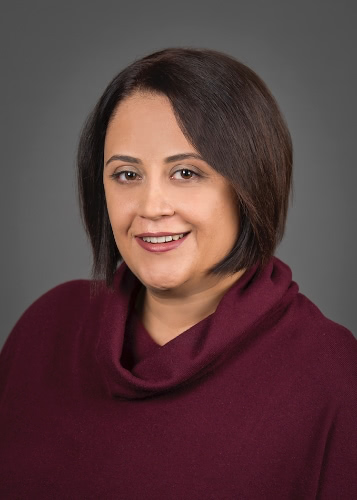Biography

Bahareh Ajami, Ph.D.
Assistant Professor of Molecular Microbiology and Immunology and Behavioral Neuroscience, School of Medicine
Bahareh Ajami earned her Master’s degree in Molecular Biotechnology from the University of Sydney, Australia. She subsequently obtained her Ph.D. in Experimental Medicine from the University of British Columbia, Canada, where she worked with Dr. Fabio Rossi in a close collaboration with Dr. Wolfram Tetzlaff. Her thesis focused on identifying the origin of myeloid cells in neurodegenerative conditions such as Amyotrophic Lateral Sclerosis (ALS) and nerve damage. During her time as a doctoral student she was lead author of two highly influential studies in Nature Neuroscience: in 2007, she was the first to prove that microglial cells, until then considered just another type of specialized macrophages are, in fact, a completely independent cell type with a unique origin. To date, this publication has been cited over 1000 times. Then, in 2011, she demonstrated that in neuroinflammatory diseases such as Multiple Sclerosis (MS), the entry of peripheral blood-derived myeloid cells in the CNS not only correlates with disease progression, but can also play a causative role in disease initiation.
She went on to perform her postdoctoral training with Dr. Lawrence Steinman, a member of the National Academy of Sciences, in a close collaboration with Dr. Garry Nolan in the Department of Neurology and Immunology at Stanford University. In one highly-cited, first-author paper to emerge from her postdoctoral research, she dissected, for the first time, the heterogeneity of myeloid cell populations in different neurological diseases, revealing a therapeutic target in a subset of immune cells which, when blocked, ameliorated the neuroinflammatory condition. As a result of these discoveries, Dr. Ajami was an invited keynote speaker at the 2018 Advances in Neurodegenerative Disease Research and Therapy Keystone meeting. Her postdoctoral work has also resulted in the discovery of a new therapeutic target for Multiple Sclerosis and ALS disease and has recently been licensed by a biotech company for further development. Dr. Ajami has been the recipient of several national and international awards and scholarships, including being the two times recipient of the Marlene Reimer Brain Star of the Year award for the most influential neuroscience paper of the year.
Dr. Ajami joined the Department of Molecular Microbiology and Immunology at OHSU as an Assistant Professor in the fall of 2019. The goal of the Ajami Lab is to advance our understanding of the function and biology of the brain’s intrinsic immune cells: microglia. The Lab is currently investigating how microglia subsets contribute to different neuropathologies as well as the mechanisms that control the functional identity of the different subsets in both mice and humans. We are looking to identify dysregulated pathways in myeloid cells that can then be harnessed to treat different diseases of the CNS.
Education
Postdoctoral Fellow, Stanford University, USA
Ph.D., University of British Columbia, Vancouver, Canada
M.S., University of Sydney, Australia
B.S., University of Tehran, Iran